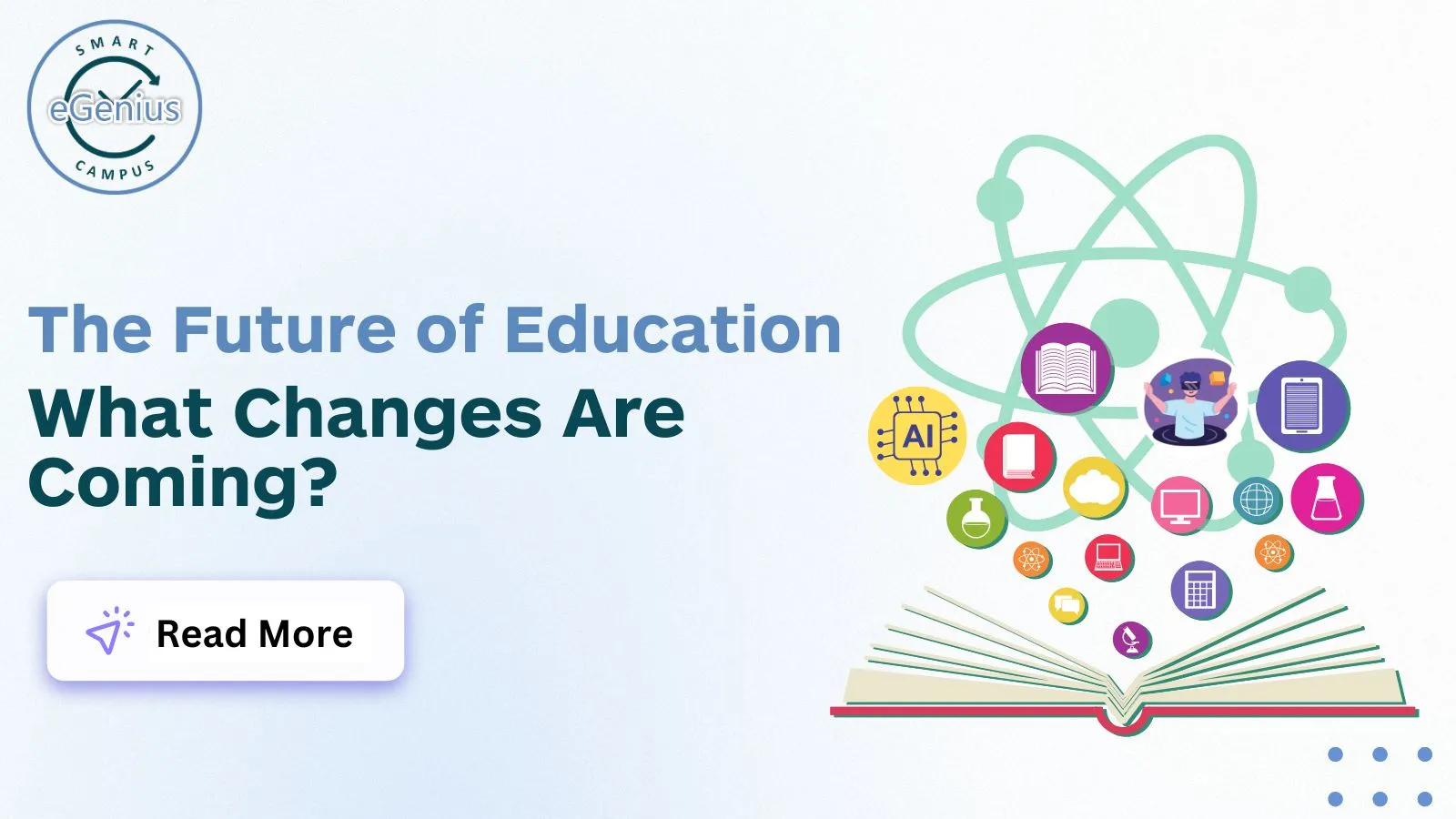The future of education is not only promising with innovations but is also writing a different chapter in history where change awaits. In the approaching years, student management system, technology, society, and education will coalesce to bring about a future where knowledge will continue to transcend limitations and encompass innovation.
Here are five predictions for the future of education in the coming decade: Here are five predictions for the future of education in the coming decade:
1. The Growth of Student Management System
2. AI (Artificial Intelligence) Revolutionizing Education
3. Personalized Education
4. Virtual and Augmented Reality Will Transform Education
5. Mobile Learning and Microlearning
1. The Growth of Student Management System
As the digital revolution gradually raises the bar in education, the advent of comprehensive student management systems is a norm in education, commonly called Education ERP. These systems are helpful because they automate many bureaucratic issues, enhance communication, and supply data analytics insights. The Education ERP modules include student information management, budget, human resources, and facilities. Integrated communications solutions bring collaboration between the stakeholders. Meanwhile, data analytics helps to gain insights into student performance and resource use. A comprehensive student management system has become the essential information processing and control tool for the modern educational facility, digitalizing workflows and enabling learning environment development.
2. AI Revolutionizing Education
AI is reshaping education through the ability to customize the learning process for each individual student.Data on student performance analyzed by AI results in the generation of tailor-made lessons. These lessons are dynamically altered on the fly based on the learner’s feedback. Intelligent tutoring systems are always ready to deliver support at the needed time by identifying learners’ knowledge gaps and adjusting levels of difficulty. This personalized mode of learning may help students with understanding the subject better by letting them learn at their own pace. AI will only continue to advance; education will then be designed to address the myriads of circumstances of various learners.
3. Personalized Education
A student management system, powered by technological advancements, provides individualized learning, which is suitable for every student. Instruction can be changed based on real-time student performance insights, including filling knowledge gaps, and encouraging greater involvement of students. The research proves that the programs using the personalized learning approach result in significant improvements in student outcomes that include a 50% growth in math proficiency. Through adopting personalized learning, schools free students from the traditional regimentation of education, giving them the liberty to manage their own pace, thus allowing a deeper understanding and academic success.
4. Virtual and Augmented Reality Will Transform Education
As a matter of fact, VR and AR, which were solely used in entertainment and healthcare in the past, are now about to bring another revolution in education. This revolutionary technology provides students with immersive learning activities that engage different senses such as vision, hearing, and touch. This approach makes concepts easier to understand and memorize. VR/AR technology is very promising, as it introduces students to environments that are inaccessible, such as Mars and the ocean depths. This technology overcomes geographical restrictions and allows students to see the world and other cultures with their own eyes when they are in the class.
5. Mobile Learning and Microlearning
In an era of connectivity and mobility, access to learning is no longer limited to the classroom or personal computer. With the increase in smartphones, tablets and wearable devices, the mobile learning trend will continue to gain more popularity in the years to come. Microlearning that relies on brief and focused learning modules will be an additional tool to the traditional instruction that will cope with the hectic lives and the short attention span of modern learners. Nowadays, every student management system provider offers its own dedicated app, providing educators, students, and parents with convenient access to essential tools and resources for seamless operation
Final words:
As we look ahead to the next decade, the future of education holds boundless possibilities fueled by innovation, technology, and a commitment to meet the evolving needs of learners. By embracing these predictions and harnessing the transformative power of educational advancements, we can pave the way for a future where education is not just a means to an end but a lifelong journey of discovery, growth, and empowerment.















